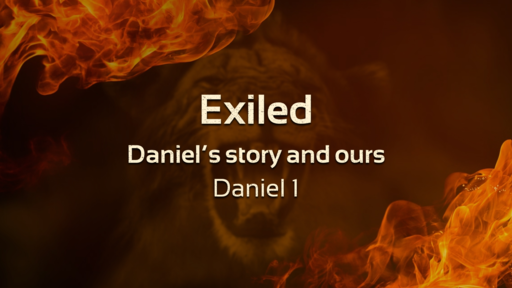Exiled

Daniel was snatched into exile in Babylon, but he responded by finding a way to continue in God's service, and that made all the difference, not just to him, but to his captors. We, too are in exile. How can we learn from Daniel in our exile to make a difference in our world?
The story so far
My exile to Japan
Daniel and co’s exile
Daniel (“God is My Judge”) became Belteshazzar (“Bel Protect Him”); Hananiah (“God Has Been Gracious”) became Shadrach (“The Command of Akku”); Mishael (“Who Is What God Is?”) became Meshach (“Who Is What Aku Is?”); Azariah (“The Lord Has Helped”) became Abednego (“Servant of Nebo”).
Daniel’s reaction
The results
How they managed it
How can we do this?
9 But you are a chosen race, a royal priesthood, a holy nation, a people for his own possession, that you may proclaim the excellencies of him who called you out of darkness into his marvelous light. 10 Once you were not a people, but now you are God’s people; once you had not received mercy, but now you have received mercy.
11 Beloved, I urge you as sojourners and exiles to abstain from the passions of the flesh, which wage war against your soul. 12 Keep your conduct among the Gentiles honorable, so that when they speak against you as evildoers, they may see your good deeds and glorify God on the day of visitation.
